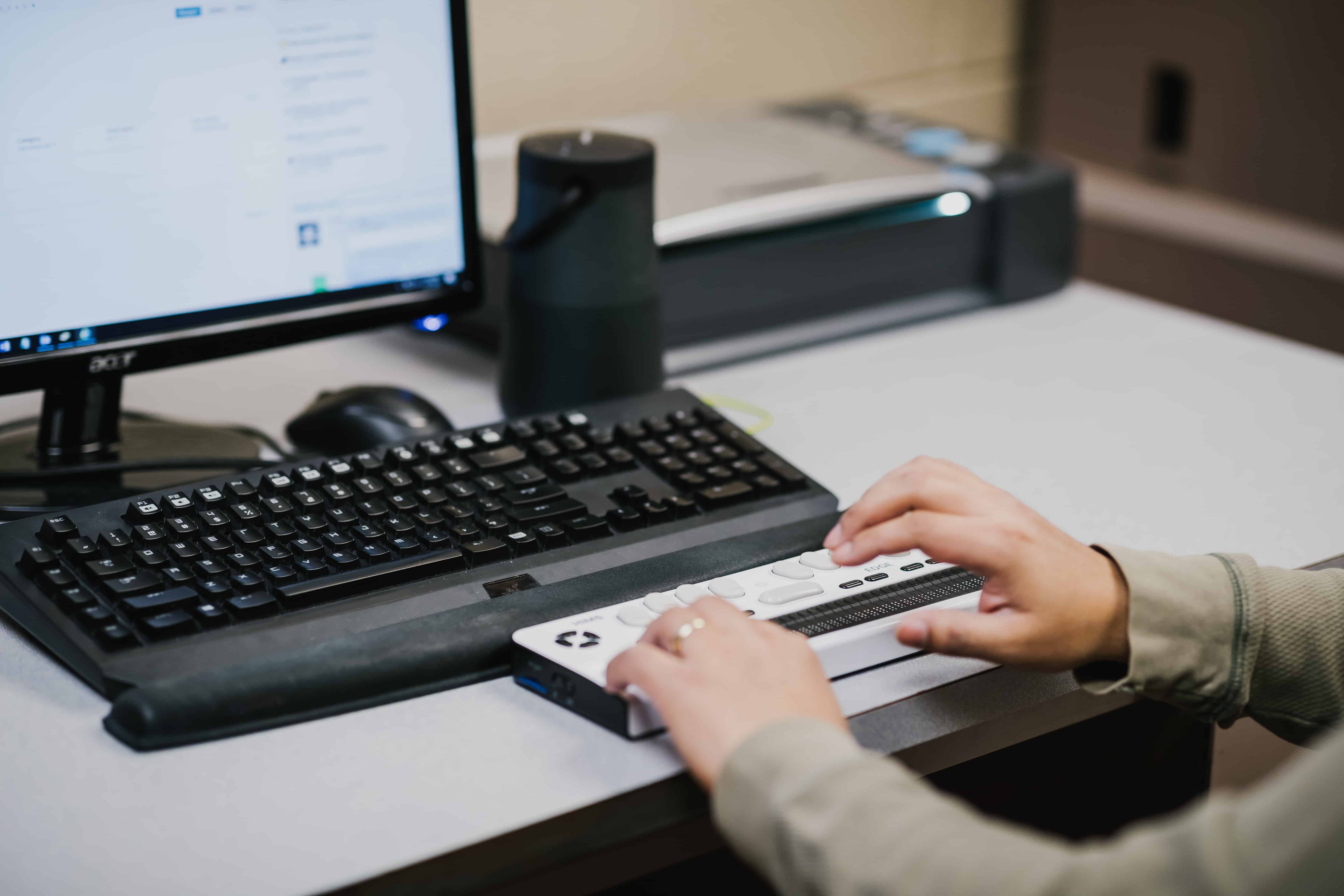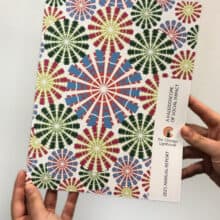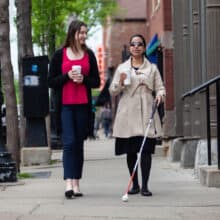Sandy’s View: The Top Three Ways Braille Can Help in the Workplace
“Do you think braille will become obsolete?” This is a question I have gotten asked numerous times by friends and family. With all the assistive technology available, such as screen readers, devices with built-in OCR capabilities (which translates print text into speech) and even artificial intelligence, I understand where the question comes from. Nowadays, a majority of people – both blind and sighted – rely on technology on a daily basis at home, school and work. My job as an associate producer at The Chicago Lighthouse Media Center involves a great deal of assistive technology. In fact, it is thanks to assistive technology that I can run our CRIS Radio station independently as someone who is blind. Nevertheless, I still use braille nearly every day while on the job.
I began learning braille in pre-school, the same age that my sighted peers started to read print alphabet and numbers. Without a doubt, braille allowed me to learn proper spelling, grammar and punctuation skills. This was the first stepping stone for me to obtain a bachelor’s degree in journalism and ultimately land a job. Here are three ways in which braille can help someone who is blind or visually impaired in the workplace.
1. Organize office materials
Keeping track of several file folders and papers is even more important for someone who is blind or visually impaired. I cannot grab something from a stack of papers and glance at it to know if it is the right one. By having braille labels on file folders and other important items around the office, I immediately know I have the correct thing in hand. I also have a pocket braille calendar on my desk. Instead of needing to listen to my computer when looking up a particular date (this can take a bit long), I can quickly find it on the calendar.
2. Have strong reading and writing skills
This is a no-brainer, but of significant importance to someone who has been blind or visually impaired since childhood. Geovanni Bahena, an IT Support Specialist and analyst of The Chicago Lighthouse’s Digital Accessible Experience Program, has been blind for his entire life. His job consists of evaluating the accessibility of different websites and assisting Lighthouse staff with IT concerns. Often, he will use a refreshable braille display – a device that allows people to read text from a computer screen in braille –for taking notes or reading emails. For Geovanni, learning braille as a child was crucial. Although his job allows him to appreciate the many ways assistive technology can help people with vision loss, Geovanni believes that there is no substitute for being able to read and write.
“There’s nothing that can replace reading all the details that braille gives you,” he says. Geovanni adds that while listening to text read out loud is very helpful, it will never teach proper spelling, grammar or formatting. These basic skills are crucial in today’s workforce for everyone.

A braille display allows people to read text from a computer screen in braille.
3. Taking notes and reading speeches
In the majority of jobs, there will inevitably be times where we might need to take notes in a meeting or give a presentation in public. While recording meetings using a voice recorder is a good solution, it can be time consuming to transcribe the notes afterward. Generally I tend to use a combination of both methods – recording meetings and taking notes on a braille display. That way, I can quickly refer to important dates, numbers, etc. in my braille notes instead of having to rewind and fast forward through the audio. As a radio broadcaster and blogger, I often have to record interviews. By having the questions in a braille hardcopy or loaded onto my braille display, I can read them naturally. Similarly, whenever I need to give speeches or read in public, I always make a hardcopy to read during the event. For me, this is much more convenient than only relying on audio to memorize the script.
If you would like more information about braille, check out The Chicago Lighthouse Resource Guide. There you will find information about organizations that provide braille instruction as well as braille materials. Do you use braille at your job? I would love to hear how it has helped you! Leave us a comment, or email me at sandysview@chicagolighthouse.org.





